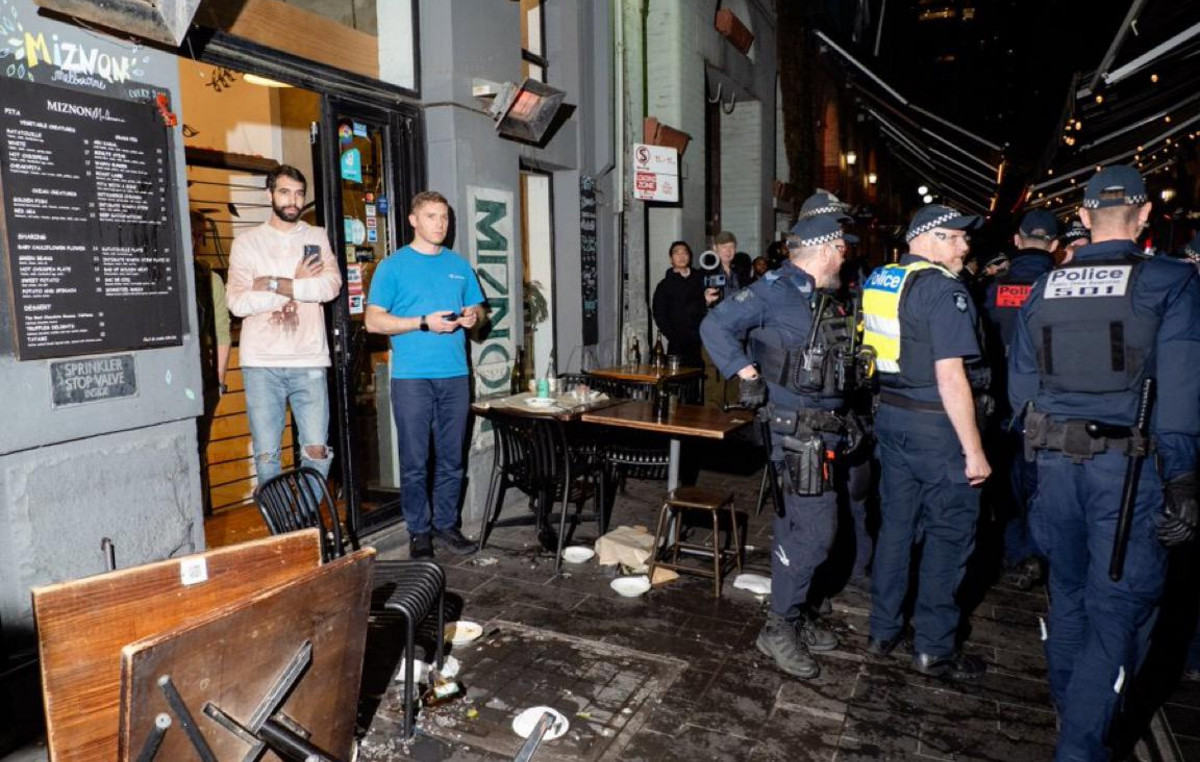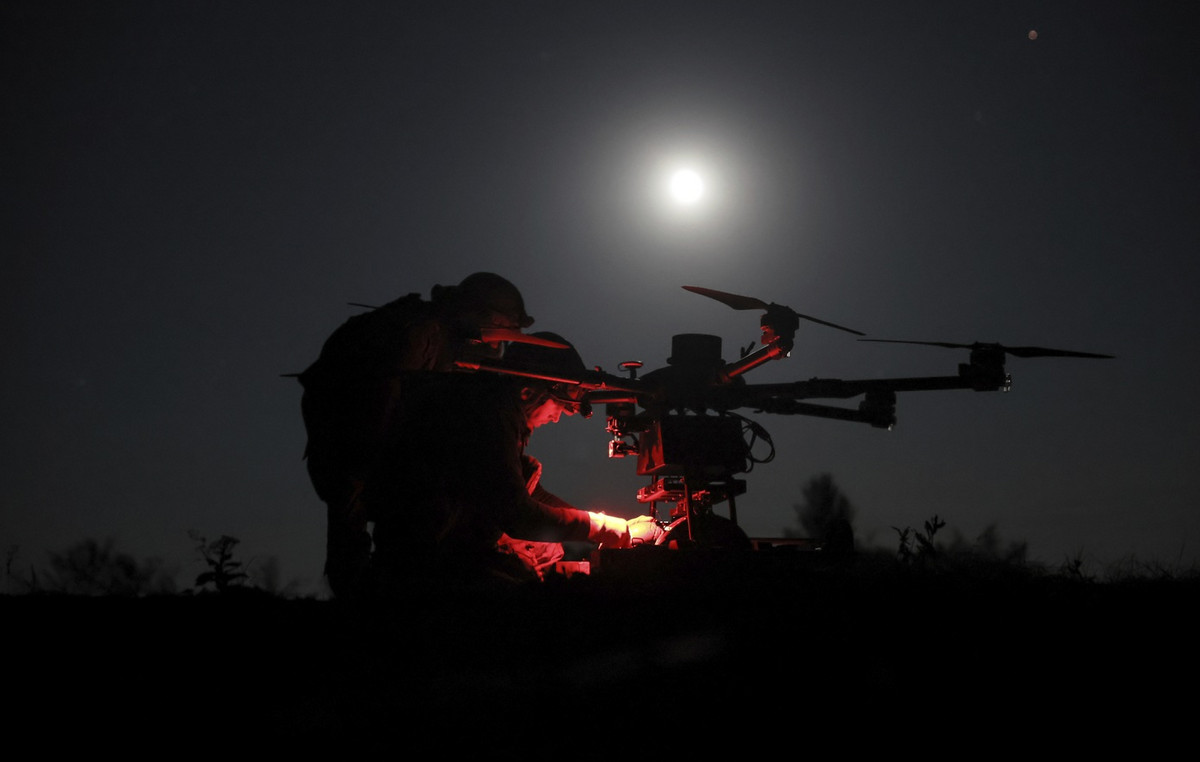Russia is losing the war against Ukraine. It hasn’t been defeated yet, but it’s heading in that direction. And President Vladimir Putin has fewer and fewer cards to play.
The combination of recent battlefield defeats with the West’s determination — in particular, a realization that Europe can simply spend the next winter using up its reserves, without needing Russia’s usual volumes of energy, as Western politicians are resolute not to admit defeat —
left Russia “on the ropes” in this ring.
The country’s supposed military strength and its status as an energy superpower (energy on which Europeans depended) appeared to be the Russian government’s most powerful assets. But now it turns out that this was a wrong premise.
So Putin, an extremist misled by his subordinates cowering about the country’s true capabilities, was forced to maneuver as if he were in a poker game. With the last letters, he renewed the nuclear threats (which he has been doing, by the way, for 15 years) and launched with a more unpopular maneuver, but less risky from the political point of view, which is the partial mobilization of 300 thousand reservists.
It is the threat of the use of nuclear weapons, of course, that causes Western decision-makers to pause and, in some cases, be insecure – and that is the intent. After all, no one can take something like that lightly from a state that has turned to fascism and possesses about half of the world’s nuclear weapons.
However, a growing majority of Western powers, and now non-Western countries as well, have noted that one cannot give in to nuclear blackmail and that the consequences of Russia’s victory in the war would have lasting damaging effects on European and global security.
Many world leaders may want to make concessions over Ukraine’s leaders. But it is politically difficult to do this when perpetrator and victim are clearly distinguishable from each other. And when Russia seems to be on the run.
In any case, recent research published by Chatham House suggests that Russia’s threshold between whether or not to use nuclear weapons is extremely high. The professional Russian military cadre has active procedures and processes, meaning there are a number of controls and barriers before considering the use of nuclear weapons.
Threatening a preemptive nuclear strike is one thing, but serious people in important positions in Russia know that the consequences would be extreme – and, not least, that they would bring many more countries into the war with ever-powerful weapons. Thus, the use of the nuclear arsenal is not impossible – it is an unsafe situation – but it remains unlikely.
Having said all this, many Western politicians are still wary of calling the Russian campaign a defeat, fearing the consequences of the actions of a desperate dictator or an imploding Russia (with an even more extreme leader).
The leaders of the United States, Germany and France, in particular, are not so explicit as to make this statement, even with the inconvenience of seeming to ignore an unfavorable outcome for Russia.

Instead, Western leaders speak more vaguely of Russia’s crimes and support for Ukraine (“for as long as it takes,” as German Chancellor Olaf Scholz said encouragingly).
But these countries cannot conceive of a defeated Russia and speak of the need not to humiliate Russia (or even Putin) — without connecting the dots that helping Ukraine restore its territorial integrity of the country would greatly humiliate the Kremlin.
Indeed, politicians are right to fear a weakened and humiliated Russia. But logic suggests they should be even more cautious about a strong and emboldened Russia. Putin’s speech on Wednesday (21), therefore, changes little.
It certainly does not change the Ukrainian resolve, but it is easy to imagine that it scares the Russian people even more, afraid of being involved in the dispute. Many Russians still support Putin (or at least are ambivalent), but most do not want to fight.
Likewise, the referendums to be held in the Donbass region of Ukraine, still dominated by Russia, will also have little effect. In fact, these “votes” are not even intended to appear legitimate, as with so many other Russian “elections”.
That would be asking too much of everyone but Putin’s most ardent supporters. At best, the referendums could serve as a pretext for broader Russian mobilization and in case the war is fought on Russian territory – thus justifying the new pressure for reservists and their inevitable sacrifice.
Putin’s likely next step, then, as he desperately looks for new ways to turn the game in his favor, will be the conventional weapons attack on Ukrainian infrastructure and the use of “traditional” hybrid warfare against the West – the real enemy to the Russians. your eyes, according to your own words.
It’s expected. Russia is down, but not defeated. The Red Army fought poorly against Finland in 1939 and was forced to retreat by the Nazis in 1941. But it regrouped and came back powerful in the later stages of the war.
More recently, in Chechnya in the late 1990s, Russia turned the tables (in part through increased brutality) after a weak start to conflict.
This is no time for complacency in the West. Putin’s regime is apparently stable. Only smooth cracks in the surface have emerged, among them the strange defection of mid-level officers, the occasional dissension from those in the closest circle of power and, of course, Putin’s own statement this week.
However, the more defeats are inflicted on him, the more his military commanders will lose confidence in Putin, if they haven’t already. That would be the best outcome: regime change from within, not from the West or even its policies. And that’s not out of reach. This war will bring down
Putin.
James Nixey is Director of the Russia-Eurasia Program at Chatham House, specializing in relations between Russia and other post-Soviet states. Previously, he worked as an investigative reporter for the newspaper “Moscow Tribune”. The opinions expressed in this text are those of the author.
Source: CNN Brasil
I’m James Harper, a highly experienced and accomplished news writer for World Stock Market. I have been writing in the Politics section of the website for over five years, providing readers with up-to-date and insightful information about current events in politics. My work is widely read and respected by many industry professionals as well as laymen.







